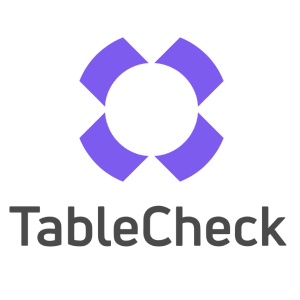Updated December 1, 2022
Changing Jobs in Japan: How to Avoid the Pitfalls
Changing jobs in Japan is not too uncommon.
People do it to grow in their career and increase their pay. They do it to avoid bad bosses or gain new experiences. And whether you’re looking for greener pastures or craving a shorter commute, switching jobs can be a great way to jump to the next level.
But how do you actually change jobs in Japan? What do you need to know beforehand? What mistakes do you need to avoid?
Here's everything you need to know about changing jobs in Japan.
In this article: 📝
- How should I change jobs in Japan?
- What do I need to settle before my last day at work?
- What do I need to settle with HR?
- What work visas can I get?
- How long does it take to change visa status in Japan?
- How long can I stay in Japan after quitting my job?
- Are there cultural concerns related to changing jobs in Japan?
How should I change jobs in Japan?
First things first, decide on your timeline.
The average time it takes to change jobs is 3 to 6 months. Of course, you can't predict 100% soit could take longer for you.
It's OK to take a couple of weeks off between positions (in fact I recommend it), but don't allow too big of a gap between your previous job and starting your next one.
Waiting too long can leave a suspicious gap in your resume and lead to additional paperwork.
Don't tell your current employer, but do tell your friends.
Compared to places like the USA, changing jobs is a bigger deal in Japan.
In Japan, a harmonious working relationship is valued, and companies expect a high degree of loyalty and commitment to the company. Of course, this varies by company, and jobs at modern startups or international companies won't care as much.
But still, don't tell your previous company until you're 100% sure. That means that you have a signed offer that you're confident is enough of an upgrade that it's worth leaving your current workplace.
You should give at least 2 weeks' notice (1 month if you want to be charitable) and be as accommodating as you can to avoid burning bridges, but beyond that there's no reason to tell the previous employer early. In the worst case, the new job could fall through and you'd be stuck with no job.
That said, if you want someone privy to your tenshoku plans, then you can tell your friends. This will be beneficial if you’re in the same field as they can recommend you to their employer. A referral is a huge plus.
Job hunt using relevant platforms.
Here's the part most people struggle with.
As a foreigner in Japan, I highly recommend using curated job boards like Japan Dev if you're looking to work at a tech company.
We cover this topic thoroughly in our guide to finding a job as a software developer in Japan — take a look if you're a software engineer and you want help avoiding the pitfalls of changing jobs in Japan.
Another option is headhunters (AKA recruiters). Just remember, don't rely too much on one recruiter. It's better to talk to several and get a good overall view of the market.
And whatever you do, find a new employer before leaving your previous company. This will allow you to take your time with your search, and ultimately lead to a better outcome.
Update your resume in English and Japanese.
Not every company requires a Japanese resume (rirekisho) but it can be helpful to have one.
Make sure you allow time for this in your timeline as having an updated resume in both languages will be a competitive edge in the Japanese job market. Ideally, you should do this in the first month of your job change timeline.
Remember to make your resume benefit-driven. In other words, focus on how you can help the company and reassuring the hiring manager that you're the right person for the job. Try putting yourself in the hiring manager's shoes and asking yourself exactly what you'd want to see from a candidate? Then make sure your resume includes those elements.
Create a checklist of tasks.
What things do you need to return to your company? What documents should you get from your current company? What documents do you need to submit to your new company?
You should talk to your previous company's HR and be sure to ask for any relevant documents before leaving. You may want a "certificate of employment" (在職証明書), which is a document stating how long you worked at the company.
There may also be relevant health insurance documents you'll need to sign if your health insurance is connected to your employment.
We'll go into more detail about the required documents below.
Submit your resignation.
This depends on the company. Some will require a formal letter of resignation, while others will just want you to let your boss know.
This shouldn't be a major concern, but you do need to remember to do it.
Courtesy is highly valued in Japanese companies. Depending on what’s stipulated in your contract, submitting your resignation at least 2 weeks, and ideally a month, before your last day is ideal.
Before your last day, make sure you transition your tasks properly. This is another important step to prevent burning any bridges, and maybe leave the door open to go back to your old company in case things don't work out at the new one.

What do I need to settle before my last day at work?
Everything that the company paid for should be returned to the company. Make sure you return these things before your last day at work:
- Company equipment and supplies
- Company ID
- Business Cards
- Security key
- Health Insurance Card
- Commuting Pass
As for your paid leave, talk to your management about how to handle them.
It's rare for companies to give you the equivalent in cash for the remaining days, so usually you'll want to take all of your remaining days before leaving. In other words, if you have 10 PTO days remaining, you'll essentially work for the company for an extra 2 weeks after your last day, but you won't need to actually work.
This can be a great way to get a nice vacation between jobs.
What do I need to settle with HR?
Before you leave your current employment, make sure you coordinate with your HR. Here's a rundown of the things you need to settle:
- Taxes
Make sure to acquire your income tax statement or tax certificate slip (源泉徴収票 gensen chōshūhyō) from your HR.
Normally the company will send you this a few weeks after you quit, and you'll need to submit it to HR at your new company after joining. So just make sure you have a plan for receiving this document.
Talk to your HR about residential tax, as well. The process of transferring it to your new company may take about two months. So, you may ask the company to deduct from your salary (tokubetsu chōshū) or pay it monthly (futsū chōshū) once you resign.
- Health Insurance
Now, you may keep your Health Insurance Card until your last working day at your current employment.
Then, if you’re starting your next job immediately, submit a Certificate of Loss of Eligibility for Coverage by Employee Health Insurance (kenkōhoken shikaku sōshitsu shōmeisho) to your new employer.
But, if you’re not starting ASAP in your next employment, you have to apply for National Health Insurance at your local city hall or ward (to cover the time between jobs). You must do this within 14 days after your last working day at the job you’re leaving.
You may also be able to stay on your previous company's health insurance for that time period (if you are planning to take some time off), but it will require submitting paperwork so ask your HR representative before leaving.
- Pension Insurance
Your pension book or nenkin techō should be forwarded to your next employer. Otherwise, if you don’t have an employer yet, you need to apply for National Pension Insurance within 14 days after your last working day at the job you’re leaving.
- Immigration-Related Documents
Your HR may help you prepare the documents required at the immigration bureau as you need to inform the immigration office of your job change. This should happen within 14 days after your last working day at the job you’re leaving.
You may see more details, including a sample notification format, here.
While you’re at it, you can also request a Certificate of Authorized Employment at the immigration office. This will make it easier to extend your visa when it expires in the future.
Also, please note: If you're on the "highly-skilled professional visa", you will need to re-apply for a new visa. Unlike most Japanese visas, the "HSP" visa is connected to your employer.
- Separation Notice.
For your personal documents, make sure to request the separation notice (rishokuhyō). It might take about 14 days to receive after your official last day of the company.
For more information about what to do when you resign from a company, you can go to Tokyo Employment Service Center for Foreigners.

What work visas can I get?
Visa-related paperwork should be done within 14 days before you start your next employment. So, arm yourself with the knowledge of visa types so that you won’t be rushing when the time comes.
The relevant visa categories for working individuals are the highly skilled professional visa and the working visa.
For highly skilled professional visa:
- It may be points-based depending on academic background, professional career, annual salary, age, etc. You may be considered for the following more specific visa types:
- Advance academic research activities (i)(a)
- Advance specialized/technical activities (i)(b)
- Advanced business management activities (i)(c)
You may refer to this table to calculate your points, or you may go to this page to better understand how the scoring works.
- Or you may fall under highly skilled foreign professional, which is given to the dependents of the highly skilled foreign professional.
For work visa, it is profession-based:
- Professor (Examples: university professor, assistant professor, assistant, etc.)
- Artist (Examples: composers, songwriters, artists, sculptors, craftspeople, photographers, etc.)
- Religious activities (Examples: religious people such as monks, bishops, missionaries, etc.)
- Journalist (Examples: newspaper journalists, magazine journalists, editors, news cameramen, announcers, etc.)
- Business manager (Examples: company presidents, directors, etc.)
- Legal/Accounting services (Examples: attorneys, judicial scriveners, public accountants, tax accountants, etc. certified in Japan)
- Medical services (Examples: physicians, dentists, pharmacists, nurses, etc. certified in Japan)
- Researcher (Examples: researchers, investigators, etc. at research institutes, etc.)
- Instructor (Examples: teachers, etc. at elementary schools, intermediate schools and high schools)
- Engineer/Specialist in humanities/International services (Examples: scientific engineers, IT engineers, foreign language teachers, interpreters, copywriters, designers, etc.)
- Intra-company transferee (Examples: people transferred to the Japanese branch (head office of the same company, etc.)
- Nursing care (Example: certified care worker)
- Entertainer (Examples: musicians, actors, singers, dancers, sportspeople, models, etc.)
- Skilled labor (Examples: chefs specializing in the food of a foreign country, animal trainers, pilots, sports trainers, sommeliers, etc.)
- Specified skilled worker (Work-ready foreign nationals who possess certain expertise and skills in certain industrial fields.)
- Technical intern training (Examples: Technical intern)
If you are remaining in the same line of work but just changing employers, paperwork is simple. But getting a new job that is different to the work visa you currently have will require more paperwork. That would entail paperwork for a change of residency status.
Check out our visa guide for more details.
And for more comprehensive information on visa types, you can check the Ministry of Foreign Affairs of Japan.

How long does it take to change visa status in Japan?
The process for changing visa status in Japan takes anywhere from 2 to 4 weeks on average.
But more major changes like going from a visa to permanent residency can take anywhere from 4 to 12 months, and require a lot of paperwork.
How long can I stay in Japan after quitting my job?
You can stay in Japan, unemployed, for 3 months only after quitting your job as long as your visa hasn’t expired yet.
So if you quit your job and can't find a new one in 3 months, you'll be in danger of overstaying your visa. Be careful!

Are there cultural concerns related to changing jobs in Japan?
“Lifetime employment” used to be common in Japanese society. You’ll hear people talking about their decades in a company. But things have changed. Now, people are more open to changing jobs.
Having said that, you still shouldn't brag at the office about your plans to leave. It will be awkward, and you might burn bridges. You wouldn’t want that, especially if you’re staying in the same industry.
It's considered safe to change jobs after three years. Personally, if you have a great offer and you're not doing it too frequently, I think 1-2 years is OK too. Either way, gauge yourself. If you can’t stand your job for three years, then I recommend you move on.
So, that’s not too bad, right? There's some paperwork involved and a few pitfalls to avoid, but changing jobs can be a rewarding way to increase your earnings and status in Japan. So we recommend you take the plunge if you find something better.
Having a good relationship with HR and leaving on good terms can help the process go a lot smoother too.
I hope these tips help you with switching careers. Good luck!
Get Job Alerts
Sign up for our newsletter to get hand-picked tech jobs in Japan – straight to your inbox.








